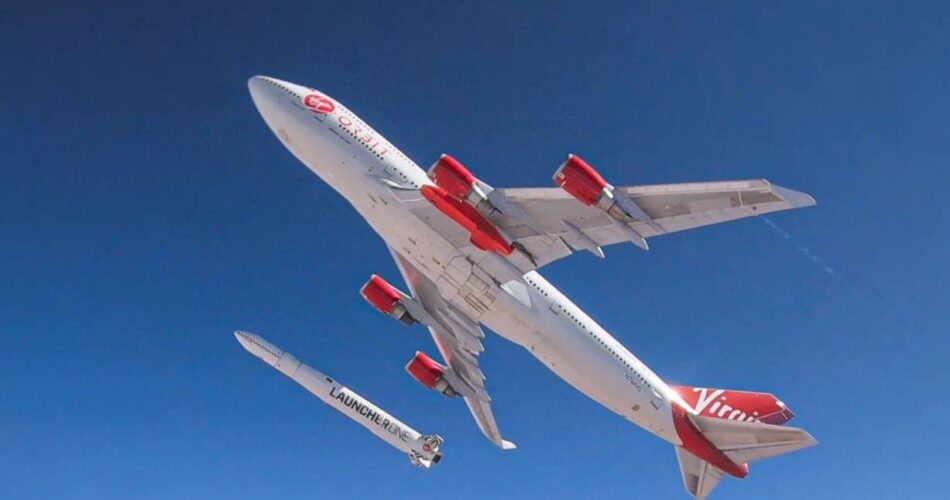Virgin Orbit has managed a third successful mission as the company deployed seven satellites into orbit from its LauncherOne rocket.
Describing itself as “the responsive launch and space solutions company,” Virgin Orbit achieved two missions last year. Yesterday’s launch was just a few days shy of the company’s first successful mission on 17 January 2021. Its first effort, in 2020, ended in failure.
This week’s launch included repeat business from the US Department of Defense and Polish company SatRevolution. The payload included experiments in space-based communications, debris detection, navigation, and propulsion. All in all, Virgin Orbit has managed to launch 26 satellites. Still, it’s a far cry from the 109 of fellow small-sat upstart Rocket Lab and just a quarter of the payloads launched by SpaceX on its Transporter-3 mission, also on 13 January.
Still, Virgin Orbit’s twist is dropping LauncherOne from its Boeing 747 carrier aircraft, Cosmic Girl. This approach means the company has no need for a fixed launchpad (Rocket Lab CEO Peter Beck described launch platforms as “a money-sucking piece of infrastructure” in a recent chat with The Register) and access to a good few trajectories not easily achievable from the surface.
The mission itself was dubbed “Above the Clouds”, named after the fifth track on Gang Starr’s 1998 album Moment of Truth.
It’s also a sly reference to the fact that Virgin’s 747 can fly above weather that would likely ground many other launch vehicles before dropping the LauncherOne rocket from beneath its wing.
The target orbit was 500km above the Earth’s surface at 45° inclination. “This is the first time that anyone has reached this orbit from the West Coast,” Virgin Orbit proclaimed.
After the lengthy wait from its previous mission, the company is aiming to up its cadence, with missions from its Mojave base including the STP-S28B launch (featuring the Colorado Inner Radiation Belt Experiment cubesat) in June.
There have also been mutterings (and splashing of cash) regarding Virgin Orbit bringing its rocket and 747 combo to Cornwall for a first UK commercial orbital launch later this year.
However, during an evidence session regarding UK space strategy and satellite infrastructure for the Science and Technology Committee earlier this week, Tim Johnson, director of Strategy & Policy at the Civil Aviation Authority, refused to confirm that applications for licences would be processed in time for rocket action from Blighty this year. ®
Source link



